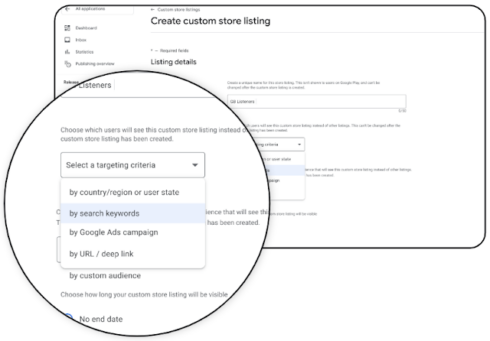
At its annual developer conference Google I/O, Google announced several updates across Google Play that help developers optimize their apps and increase engagement with users.
New features to improve app quality, trust
The company is opening up the SDK Console to all SDKs that come from a verifiable Maven repository source. Previously it was only available for the most widely adopted SDKs.
The SDK Console provides usage statistics for SDKs that developers can use to improve their apps to increase adoption and engagement, as well as tools for fixing quality issues.
Developers can also now utilize pre-review checks before they release app updates. This new feature brings together several existing quality checks under a single interface to make it easier for developers to see potential problems at a glance.
Several new features were added to the Play Integrity API, an API that allows developers to check that their app hasn’t been modified in any way and that users are experiencing their apps in the intended way.
Developers are now provided with an app access risk check, which lets them know if another app is capturing the screen, displaying overlays, or otherwise controlling the device. According to Google, accessibility apps that actually use those features in a helpful and intended way won’t be counted.
There is also now a way for developers to see if Play Protect is turned on. Play Protect is a Google Play feature that runs safety checks on apps to see if they are performing harmful behavior.
The final new Play Integrity API feature is that developers can now tell if a device is making a high volume of requests, which could indicate bot traffic or attacks.
New ways to acquire users in Google Play
Developers can now create custom store listings based on certain search keywords, allowing developers to write different listings for different search queries. The Play Console will also now provide keyword suggestions for those that will have the most positive impact.
In addition, Google created a new Play Academy course on how to create listings that target specific terms.
Google Play listings can also now be specific to a device so that they are more relevant to different device users. For instance, listings can now display screenshots, reviews, and ratings for each specific device. Users can also search and filter by device when looking for apps.
Finally, the company has made it easier to manage deep links within the Play Console. Deep links lead directly to a specific part of your app and can be clicked on from an external source, like a web page. Now Google is introducing deep link patching, which allows developers to quickly change their deep-link setup without releasing new app versions.
Engage SDK gets new surface
Engage SDK enables developers to create more personalized app content based on what their users’ interests are, and this new surface allows developers to highlight content from users’ installed apps and launch users into a full-screen experience with personalized promotions.
This surface can also be used to attract users who have not yet installed the app by showcasing its content.
Google Play Commerce adds new payment options, optimized pricing, and improved purchasing experiences
Customers now have access to more options for paying for app content. For instance, Pix has been enabled in Brazil and UPI has gotten more support in India, which will enable more purchases in those regions.
Parents can now make purchases for their children from any device using Google family. And in India, customers can ask someone they know who isn’t in their Google family group to make a purchase for them by sharing a payment link.
Google Play will also now automatically recommend updated price ranges based on fluctuations in currency compared to the U.S. dollar.
And the limit for pricing products on Google Play has been raised to $999.99 USD to give developers more options.
And finally, there are a few new features to improve the purchasing process. New badges for “best selling,” “trending,” “popular,” and more have been added to Google Play listings to help guide purchasing decisions for customers.
Developers can also offer customers the option to pay for long-term subscriptions over time via a payment plan. For instance, a yearly subscription that costs $99.99 could be paid for each month for $8.33 per month.
Additionally, Google has introduced the Play Billing Lab app, which enables developers to test out features that will improve the purchase experience.




